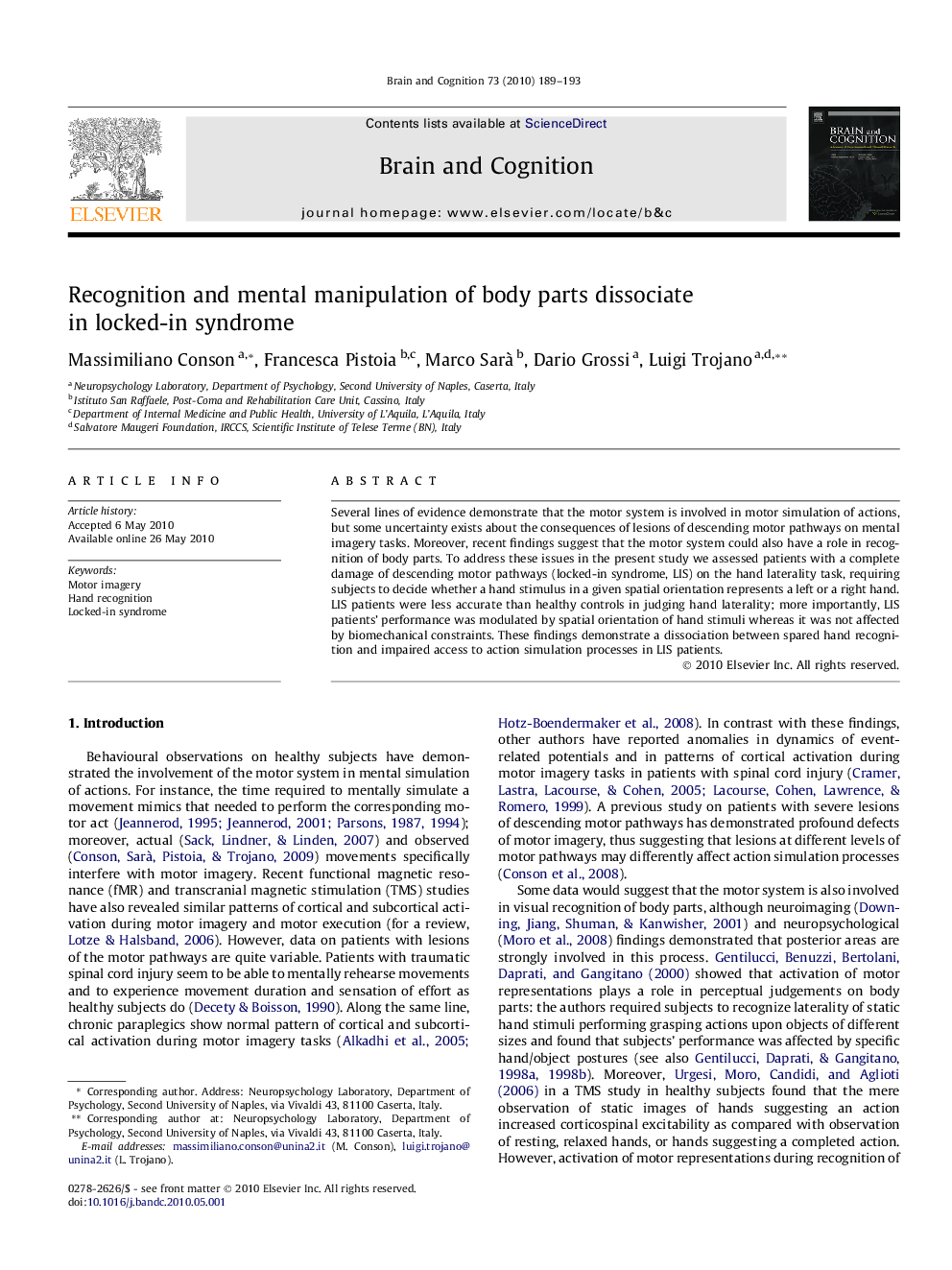| Article ID | Journal | Published Year | Pages | File Type |
|---|---|---|---|---|
| 924333 | Brain and Cognition | 2010 | 5 Pages |
Several lines of evidence demonstrate that the motor system is involved in motor simulation of actions, but some uncertainty exists about the consequences of lesions of descending motor pathways on mental imagery tasks. Moreover, recent findings suggest that the motor system could also have a role in recognition of body parts. To address these issues in the present study we assessed patients with a complete damage of descending motor pathways (locked-in syndrome, LIS) on the hand laterality task, requiring subjects to decide whether a hand stimulus in a given spatial orientation represents a left or a right hand. LIS patients were less accurate than healthy controls in judging hand laterality; more importantly, LIS patients’ performance was modulated by spatial orientation of hand stimuli whereas it was not affected by biomechanical constraints. These findings demonstrate a dissociation between spared hand recognition and impaired access to action simulation processes in LIS patients.
